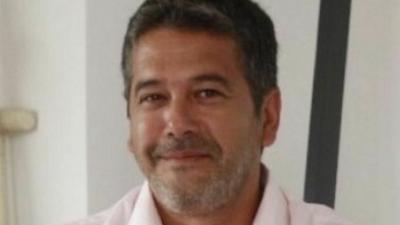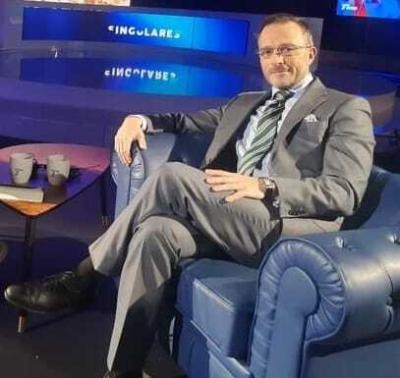Portugal’s political news is not free from the spectre of corruption. Of course, there have been other important news items, such as the adoption of euthanasia, mentioned at the end of this article, but the succession of corruption-related news items occupies the front page of all the newspapers.
The TAP case continues to provoke scandals and resignations of high-ranking socialist officials. This time it was the turn of Infrastructure Minister João Galamba, whose advisor, Frederico Pinheiro, was sacked because of reports linking him to the TAP case. However, Pinheiro did not take his dismissal well and went to the Ministry of Infrastructure where, according to reports, he stole a laptop using violence. The contents of the laptop were unknown, but the affair became even more controversial when it turned out that the Information and Security Service (SIS) got involved in the attempt to recover the stolen laptop. Faced with a scandal, Minister Galamba presented his resignation to the Prime Minister, António Costa, “to ensure the necessary institutional tranquillity”. Costa did not accept his resignation: “This is a noble gesture that I respect, but cannot accept in good conscience”, he told reporters, pointing out that Pinheiro’s actions were not “attributable” to the minister. Not surprisingly, Costa’s decision did not please the opposition, which had called for the minister’s resignation, nor the president of the Republic, Marcelo Rebelo de Sousa. In a note published on the official website of the Presidency of the Republic, the president expressed his disagreement with Costa’s “political reading” “and the resulting perception on the part of the Portuguese people regarding the prestige of the institutions that govern them”. For Rebelo de Sousa, the reasons given by the minister for his resignation were “weighty” and he described the situation as “deplorable”.
On 16 May, the president of the TAP investigation commission informed President of the Assembly of the Republic, Augusto Santos Silva, of a new leak of information from documents in the commission’s archive. It was the second time this has happened. Two days later, Pinheiro appeared before the Parliament to respond to the deputies and accused the “powerful government machine” of having sought to create a “false narrative about the events that took place”, both regarding the alleged theft and in relation to the TAP investigation. Following this statement, CHEGA asked Prime Minister Costa for all communications with Minister João Galamba on the night of the events. According to André Ventura, Costa is “afraid of being investigated, afraid of being scrutinised and afraid of being accused of abuse of power and of abusing state services for eminently party matters”. Former President Aníbal Cavaco Silva also accused the government of specialising in “lies and propaganda” and wondered how it could have fallen “so low in terms of political ethics”. If this continues, the TAP case could bury the socialist government.
However, TAP is not the only corruption case affecting the Portuguese Left. On 16 May, the judicial police arrested six people following searches in the town halls of Vila Nova de Gaia and Porto. One of those arrested was the deputy mayor of Gaia, the socialist Patrocínio Azevedo, who was responsible for urban planning and land policy, urban licences and municipal works. It subsequently emerged that another socialist, Pedro Baganha, a councillor for urban planning in the Oporto city council, was under investigation and that his mobile phone had been seized by the judicial police. The operation, called Babel, investigates crimes of abuse of power, active and passive corruption, and undue advantage in the field of urban planning involving real estate interests of the order of 300 million euros. A few days later, Operation Babel also implicated the Minister of Health, the socialist Manuel Pizarro, who is also being investigated for prevarication in relation to this case. In mid-June, Patrocíno Azevedo, under house arrest since the case was uncovered, resigned as deputy mayor and president of the local socialist council, but at the same time reaffirmed his innocence. Another of the main suspects in the plot, a businessman and the CEO of the Fortera group, Elad Dror, paid a bail of one million euros to get out of prison and also resigned from his business position.
As if that were not enough, on 22 May a TVI/CNN investigative programme was broadcast detailing the investigation by the Public Prosecutor’s Office against the Minister of Finance, Fernando Medina, suspected of committing several crimes, including corruption, economic participation in business, prohibited party financing, prevarication of political officials, influence peddling and abuse of power, in the framework of the Tutti-Frutti case when he was mayor of Lisbon in 2017. That case would affect not only socialist politicians, but also conservative PSD politicians. However, the investigation regarding Fernando Medina, Minister of Finance, as well as Duarte Cordeiro, Minister of the Environment, is paralysed due to “lack of resources” in the Ministry of Justice, as the Attorney General of the Republic, Lucília Gago, admitted on 3 June. Undoubtedly, the ‘Tutti Frutti’ case promises to be a new source of scandal.
Portuguese socialism has a serious corruption problem. It is not new, but is now beginning to affect the socialist electorate. According to the latest polls published in June and early July, voting intentions in Portugal are swinging to the Right. Although the Socialist Party is still the most voted party, the PSD and CHEGA, consolidated as the third political force, would reach a parliamentary majority with 45% of the vote. Therefore, the PSD needs CHEGA to form a government, and Portugal joins the European trend.
Portuguese parliament legalises euthanasia
The euthanasia bill was finally approved after having been rejected up to four times by vetoes from President Rebelo de Sousa, a practising Catholic and opponent of euthanasia, and due to the unconstitutionalities decreed by the Constitutional Court. The latest was on 19 April, when in a letter to parliament Rebelo de Sousa asked MPs to clarify “who defines the physical incapacity of the patient to self-administer lethal drugs, as well as who should ensure medical supervision during the act of medically assisted death”. However, the Portuguese constitution allows the parliament to overcome the presidential veto by an absolute majority of deputies, i.e. 116 out of 230, and so it was. The Left and the liberals presented a bill identical to the previous one except stating that euthanasia will only be carried out if assisted suicide is impossible due to the patient’s physical incapacity. On 12 May the bill was passed by 129 votes in favour and 81 against (Popular and CHEGA), forcing the president to enact it.
Read also
Selling the bear’s skin before it’s hunted
Two weeks ago, Alberto Núñez Feijóo saw himself as President and clear winner of the general elections in Spain.
Álvaro Peñas
Nacho Montes de Oca: “The best way to disarm the Russian propaganda is to go back to the basic point, which are values”
Nacho Montes de Oca is an Argentinean writer and journalist, known for his books of essays dedicated to historical research and analysis of wars and other contemporary conflicts.
Álvaro Peñas
Rubén Herrero de Castro: “Russia wanted to behave like a superpower, but it is not”.
Interview with Rubén Herrero de Castro, PhD in Political Science and Sociology from the Complutense University of Madrid and Professor of International Relations at the Faculty of Political Science at the same university. He is a researcher at the Franklin Institute of the University of Alcalá de Henares and the Research Unit on Security and International Cooperation. Author of several books, including The Invented Reality.










Comments (0)